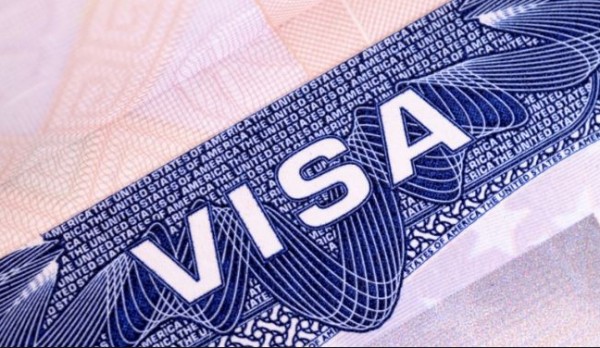
Given the congressional calendar, the bill introduced by Coffman and Krishnamoorthi is unlikely to pass.
Colorado Republican Rep. Mike Coffman and Illinois Democrat Raja Krishnamoorthi has introduced an expansive bill in Congress that “would grant H-1B holders the flexibility to move to new jobs while allowing their spouses holding H-4 visas the right to continue their careers and contribute to the American economy.”
The bill, H.R. 6794, known as the “Immigration Innovation Act of 2018,” was introduced on Thursday. It was referred to the committees on the Judiciary, and Education and the Workforce.
It calls for reforming and streamlining the H-1B visa program, “while increasing investment in American Science, Technology, Engineering, and Mathematics (STEM) Education for students in K-12, post-secondary, or college programs,” Coffman said in a press release.
“Our immigration policies must fit with the economic needs of our country,” he said. “One critical part of Congress’ job is ensuring that immigration laws match our country’s high-tech workforce requirements as well as meet the needs of H1-B visa applicants and their families.”
The bill requires fees collected for H-1B and conditional green cards to go to state-administered grant fund in the Department of Treasury and it will be used to promote domestic STEM education and worker training, including financial aid and research initiatives. According to the bill, states will receive 93 percent of the money, half of which will be used for education and the other half for worker training. (Of the remaining amount, 2 percent will go to national R&D and 5 percent will be given as financial aid.)
Both Krishnamoorthi and Coffman believe that the expanded investments in advanced training for the domestic workforce will “ultimately reduce demand for foreign workers while helping the American economy grow.”
“To develop the skills of our domestic workforce, our bill increases investments in our education system to guarantee that American workers are trained for high-tech jobs,” said Krishnamoorthi, an Indian American lawmaker said. “It also reforms the visa system for highly-skilled workers which allows American businesses to compete in the global economy.”
However, with midterm elections less than two months away and the Trump administration embroiled in a plethora of scandals, it is highly unlikely that the bill will become law in the 115th Congress.
No companion bill has been introduced in the Senate so far.
Among other things, the Coffman- Krishnamoorthi bill also calls for reducing the green card “backlog by expanding education-based exemptions from per-country caps for H-1B holders,” which will largely benefit Indian and Chinese nationals currently waiting for green cards.
It also proposes to give work authorization for H4 visa holders, who are spouses and dependent children of H-1B visa workers, at the prevailing wage.
The bill, if enacted, will allow students on F-1 visas to seek permanent resident status “while a student or during Optional Practical Training.”
Here are some of the key proposals contained in the bill:
- Allowing US “university-educated professionals to apply directly for conditional green cards;”
- Banning employers from hiring H-1B holders to replace US workers;
- Increasing funding for STEM education at high school, post-secondary and university levels;
- Removing the current annual exemption cap on H-1B visas for holders of US master’s degrees or higher (which is 20,000 per year at the moment) for individuals who are sponsored for a green card, and narrowing education-based cap exemption to those with American PhDs;
- Creating lottery prioritization for cap-subject petitions for holders of US masters degree or higher, foreign Ph.D’s and U.S. STEM bachelor’s degrees;
- Establishing a grace period to allow H-1B visa holders to change jobs without their losing legal status to permit mobility under qualifying circumstances;
- Subjecting employers who have more than five H-1B employees to a penalty for each employee who worked less than 25 percent of the first work-authorization year;
- Reassigning unused visas from previous years;
- Exempting spouses and children of employment-based green card holders, holders of US STEM master’s degrees or higher, and individuals with extraordinary skill in arts and sciences from caps;
- Creating new conditional green card category to allow US employers to sponsor university-educated foreign professionals through a separate path from H–1B;
- Requiring employers to attest that no American worker has been displaced for the green card holder;
- Undertaking recruitment efforts to fill the position with a US worker
- Offering prevailing wage “not less than $100,000 per year (subject to inflation after the 3rd year of employment); and
- Increasing application fee to $10,000 for each employee.
ALSO READ:
Indian H-1B workers particularly affected by green card delays: Migration Policy Institute




4 Comments
Which elections have been mentioned in this context and what is the probability of this bill being passed and when?
Never met a smart American worker. Mostly shitty at their job when they join. Takes longer to train them & still they never become masters of the trade.
Apparently America must be doing something wrong since they are the leaders of every industry and the ones who first invented everything. U are just complaining. U don’t need to be white to be American. America is made of all ethnic background that we’re born here and I can tell you there many born Americans of varies ethnic background that are very smart.
Please, outsource our Congress with the H1B visa workers.